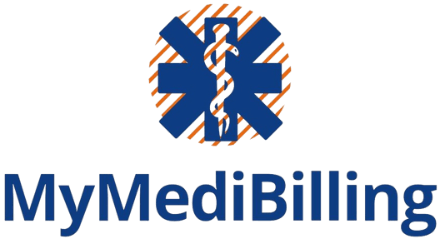Introduction
Claims denials can significantly impact the financial health of healthcare providers, making it essential to understand the underlying reasons for these occurrences. One of the most prevalent causes of claims denials is incomplete or inaccurate patient information. This can include errors in patient demographics, insurance details, or even the absence of necessary authorizations.
For instance, if a patient’s insurance policy has lapsed or if the provider fails to verify eligibility before treatment, the claim may be denied. Additionally, coding errors, such as using outdated or incorrect codes for diagnoses and procedures, can lead to denials. These mistakes not only delay reimbursement but can also result in additional administrative burdens as staff work to rectify the issues.
Another common reason for claims denials is a lack of medical necessity. Insurers often require that services provided are deemed medically necessary based on established guidelines. If a claim does not demonstrate this necessity, it may be rejected.
For example, a patient undergoing a procedure that is not supported by clinical evidence may find their claim denied. Furthermore, denials can arise from issues related to timely filing. Each insurance company has specific deadlines for submitting claims, and missing these deadlines can result in automatic denials.
Understanding these common pitfalls is the first step toward reducing claims denials and improving overall revenue cycle management.
Key Takeaways
- Understanding the common reasons for claims denials is crucial for improving denial rates
- Implementing effective documentation and coding practices can help reduce the likelihood of claims denials
- Streamlining the claims submission process can lead to faster and more accurate claims processing
- Leveraging technology can help identify and address potential denial issues before claims are submitted
- Improving communication with payers and patients can help resolve denial issues more efficiently
Implementing Effective Documentation and Coding Practices
Standardized Templates for Clinical Documentation
Healthcare providers should adopt standardized templates for clinical documentation that capture all necessary details, including patient history, examination findings, and treatment plans. This thoroughness not only aids in compliance with payer guidelines but also enhances the quality of care provided to patients.
Proper Coding for Successful Claims Submission
In addition to robust documentation, proper coding is essential for successful claims submission. Healthcare providers must ensure that they are using the most current coding systems, such as ICD-10 for diagnoses and CPT codes for procedures. Regular training sessions for coding staff can help keep them updated on changes in coding guidelines and payer policies.
Prioritizing Accurate Documentation and Coding Practices
Moreover, implementing a dual-review process where both clinical and coding staff review claims before submission can catch potential errors early on. By prioritizing accurate documentation and coding practices, healthcare organizations can significantly decrease their claims denial rates.
Streamlining the Claims Submission Process
Streamlining the claims submission process is vital for reducing delays and minimizing denials. A well-organized workflow can enhance efficiency and ensure that claims are submitted promptly and accurately. One effective strategy is to establish a centralized claims management system that allows for real-time tracking of claims from submission to payment.
This system should integrate with electronic health records (EHR) to facilitate seamless data transfer and reduce manual entry errors. By automating routine tasks, such as eligibility verification and claim status checks, staff can focus on more complex issues that require human intervention. Additionally, adopting a standardized checklist for claims submission can help ensure that all necessary information is included before sending a claim to payers.
This checklist should cover essential elements such as patient demographics, insurance details, procedure codes, and supporting documentation. Regular training sessions for staff involved in the claims process can also reinforce best practices and highlight common pitfalls to avoid. By streamlining the claims submission process, healthcare organizations can improve their operational efficiency and reduce the likelihood of denials.
Leveraging Technology to Reduce Denials
| Metrics | 2019 | 2020 | 2021 |
|---|---|---|---|
| Denial Rate | 12% | 10% | 8% |
| Technology Investment | 500,000 | 750,000 | 1,000,000 |
| Automation Rate | 30% | 40% | 50% |
The integration of technology into the claims management process can significantly reduce denial rates by enhancing accuracy and efficiency. Advanced software solutions can automate various aspects of claims processing, from eligibility verification to coding compliance checks. For example, using artificial intelligence (AI) tools can help identify potential errors in real time before claims are submitted, allowing staff to correct issues proactively.
These technologies not only minimize human error but also expedite the overall claims process, leading to faster reimbursements. Moreover, data analytics can play a crucial role in identifying trends in claims denials. By analyzing historical data on denied claims, healthcare organizations can pinpoint specific areas where improvements are needed.
For instance, if a particular procedure consistently results in denials due to coding errors, targeted training can be implemented to address this issue. Additionally, leveraging electronic claim submission systems can streamline communication with payers and reduce the time spent on follow-ups. By embracing technology, healthcare providers can create a more efficient claims management process that ultimately leads to lower denial rates.
Improving Communication with Payers and Patients
Effective communication with both payers and patients is essential for reducing claims denials. Establishing strong relationships with insurance companies can facilitate smoother claims processing and quicker resolution of issues when they arise. Regular meetings or check-ins with payer representatives can help providers stay informed about changes in policies or requirements that may affect claims submissions.
Furthermore, having a dedicated team responsible for managing payer relationships can ensure that any discrepancies or questions regarding claims are addressed promptly. Equally important is clear communication with patients regarding their insurance coverage and financial responsibilities. Educating patients about their benefits and any potential out-of-pocket costs before treatment can prevent misunderstandings that may lead to denied claims later on.
For instance, providing patients with detailed information about pre-authorization requirements or coverage limitations can help set realistic expectations. By fostering open lines of communication with both payers and patients, healthcare organizations can mitigate issues that contribute to claims denials.
Conducting Regular Audits and Reviews of Denied Claims
Identifying Patterns and Issues
For example, if a significant number of denials stem from coding errors related to a specific service line, it may signal a need for additional training or resources in that area. This insight allows healthcare organizations to address the root cause of the problem, rather than just its symptoms.
Improving Operational Efficiency
Conducting these audits not only helps in understanding the reasons behind denials but also provides valuable insights into improving overall operational efficiency. In addition to identifying trends, regular reviews of denied claims allow organizations to track their denial rates over time and measure the effectiveness of implemented strategies.
Tracking Progress and Setting Goals
Establishing key performance indicators (KPIs) related to claims denials can help organizations set benchmarks and goals for improvement. For instance, tracking the percentage of denied claims that are successfully appealed can provide insight into the effectiveness of denial management efforts. By committing to regular audits and reviews, healthcare providers can create a culture of continuous improvement that ultimately leads to reduced denial rates.
Creating a Culture of Improvement
This culture of continuous improvement is crucial for healthcare organizations to stay competitive and provide high-quality services to their patients. By regularly reviewing and addressing denied claims, healthcare providers can streamline their processes, reduce costs, and improve patient outcomes.
Developing a Proactive Denial Management Strategy
A proactive claim denial management strategy is essential for minimizing claims denials and ensuring financial stability within healthcare organizations. This approach involves anticipating potential issues before they arise and implementing measures to address them proactively. For instance, conducting regular training sessions for staff on best practices in documentation and coding can help prevent errors that lead to denials.
Additionally, establishing clear protocols for verifying patient eligibility and obtaining pre-authorizations can mitigate risks associated with incomplete information. Furthermore, creating a dedicated denial management team can enhance an organization’s ability to respond swiftly to denied claims. This team should be responsible for analyzing denied claims, identifying root causes, and developing targeted interventions to address these issues.
By fostering a culture of accountability and continuous improvement within this team, organizations can create an environment where proactive measures are prioritized over-reactive responses. Ultimately, developing a comprehensive denial management strategy will empower healthcare providers to reduce their claims denial rates significantly while improving overall revenue cycle performance.
Conclusion
Reducing claims denial is a multifaceted approach that combines accurate data entry, effective training, advanced technology, and robust monitoring systems. By focusing on these areas, healthcare providers can significantly enhance their claim acceptance rates, ensuring smooth financial operations and improved patient satisfaction.


